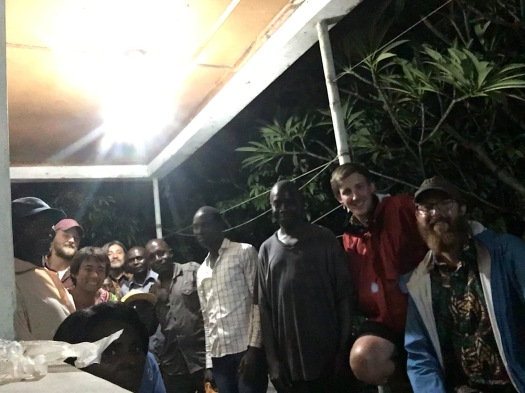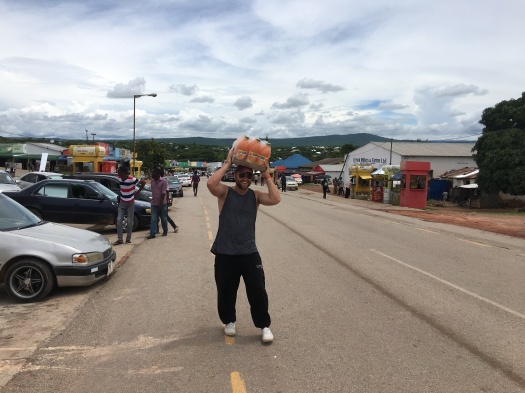After well over a year of planning and organizing, I spent the last two months of 2019 on a research expedition to the Zambian shore of Lake Tanganyika. This expedition was a collaboration between Ohio State University, McMaster University, University of Wollongong, University of Zambia, and the Zambian Department of Fisheries. On this trip, we investigated the behavior and physiology of a group of very unique fish there.

Several species of fish in this lake have evolved to live in complex social groups often referred to as Cooperatively Breeding Societies. In general, these societies are characterized by groups of individuals living together in groups in which not all group members reproduce, and non-reproductive group members help raise the offspring of other group members. Such societies are common in mammals and birds, but they’re extremely rare in fish. In fact, the only fish known to live in such groups are a small group of closely related cichlid fish living in one place – Lake Tanganyika. The general aim of our expedition was to study these social groups, to better understand how these social systems evolved, and to understand how the physiology of these fish relates to their unique social behavior.

We performed a number of experiments during the expedition; in the coming months we look forward to presenting our findings and I look forward to sharing them here. In this post however, I’ll highlight some of my takeaways from the trip.
Science is Collaborative. In addition to our expedition team, this trip would not have happened without the guidance and assistance of a number of other scientists. Without help from research teams at Osaka City University, University of Bern, Max Planck Institute, and University of California, Davis, we would not have been able to do our work. Since establishing relationships with these scientists, additional collaborations (and friendships) have been established.

Every scientist has experienced or heard stories of scientists not working well together. Whether being secretive and distrusting, or outright obstructing others, such interactions harm scientific progress. This expedition was an encouraging example of how scientists at different institutions can work together to everyone’s benefit.
Experiments Don’t Always Work. Things go wrong in science, especially in the field. Whether it’s bad weather, broken equipment, or simply the fact that some fish would just rather swim away than be observed, experiments rarely go exactly as planned. This is an example of how science is a creative process. Scientists need to be able to think creatively about how to solve problems and design experiments that will allow them to answer interesting and important questions.

As was expected, we dealt with many setbacks along the way. But in general we were able to overcome each of them by working together and thinking creatively.
Enjoy the Experience. Opportunities like this expedition are rare. One evening while discussing the trip, we reflected on the fact that we are amongst a relatively small number of people who have dove in Lake Tanganyika. Getting there is hard enough that very few outsiders go, but to dive when you’re there is very special.

Lake Tanganyika is changing fast. Cities and villages along its shores are growing quickly, and advances in infrastructure will further facilitate future growth. In many ways this is great news for the people living near the lake; but overfishing, pollution, and urban runoff were even more apparent than when I last visited the lake in 2013. I hope the people of Zambia and the other countries bordering the lake are able to preserve the lake and its valuable resources for future generations. Lake Tanganyika is truly a special place, and not only because of its unique fish.

I’m excited to be home and to start my new position at Millersville University in a few weeks, but I hope I get the opportunity to return to Lake Tanganyika soon!
